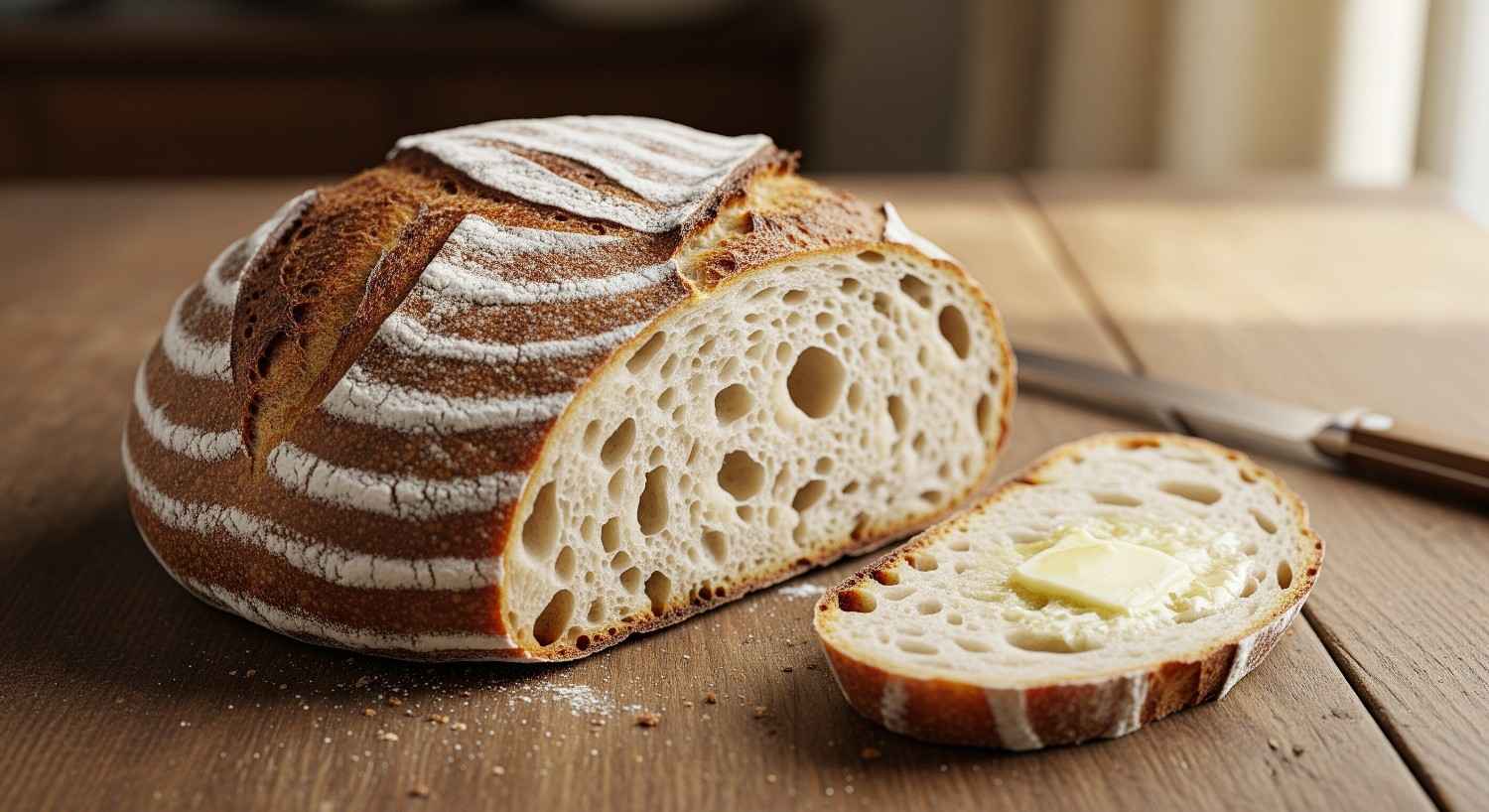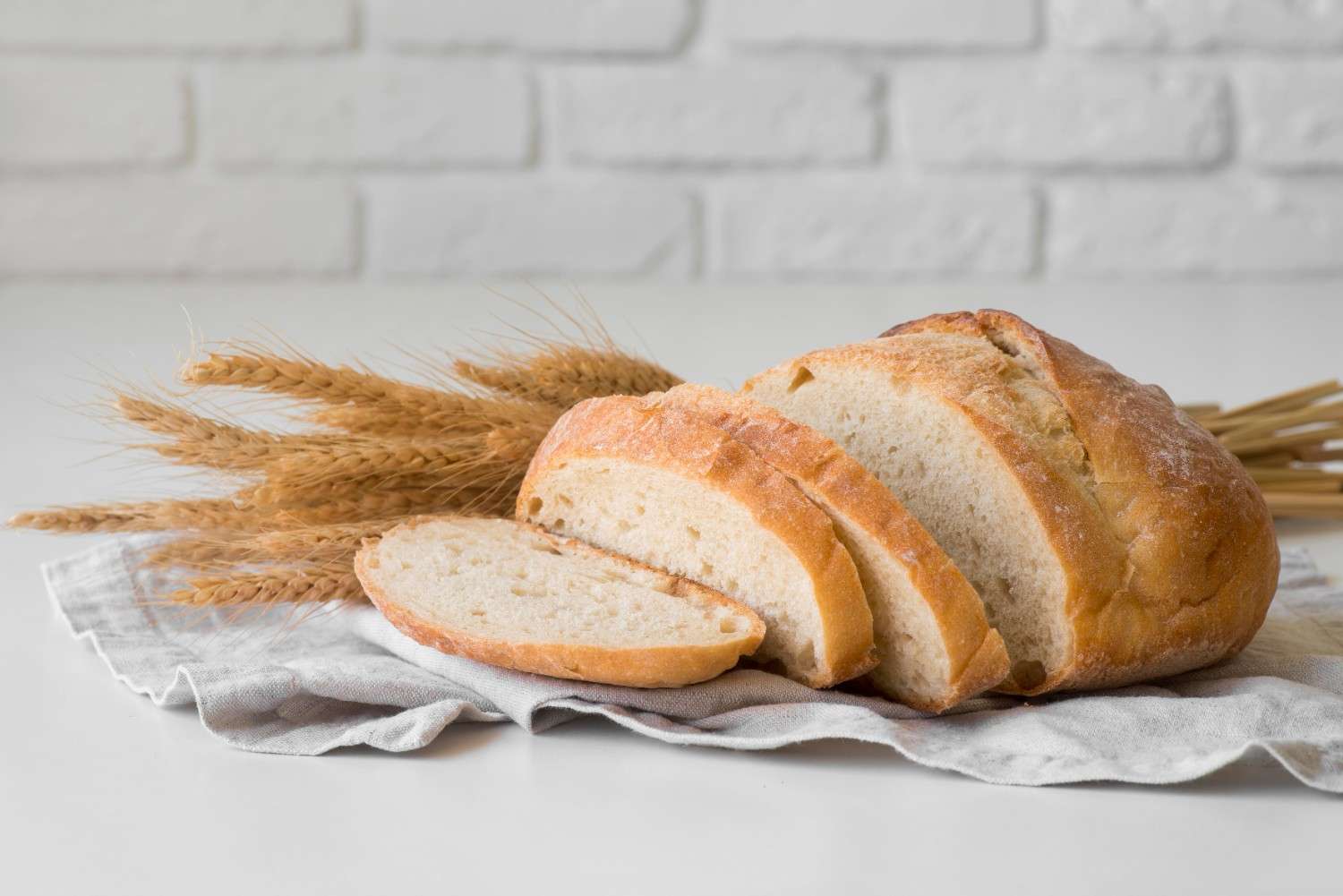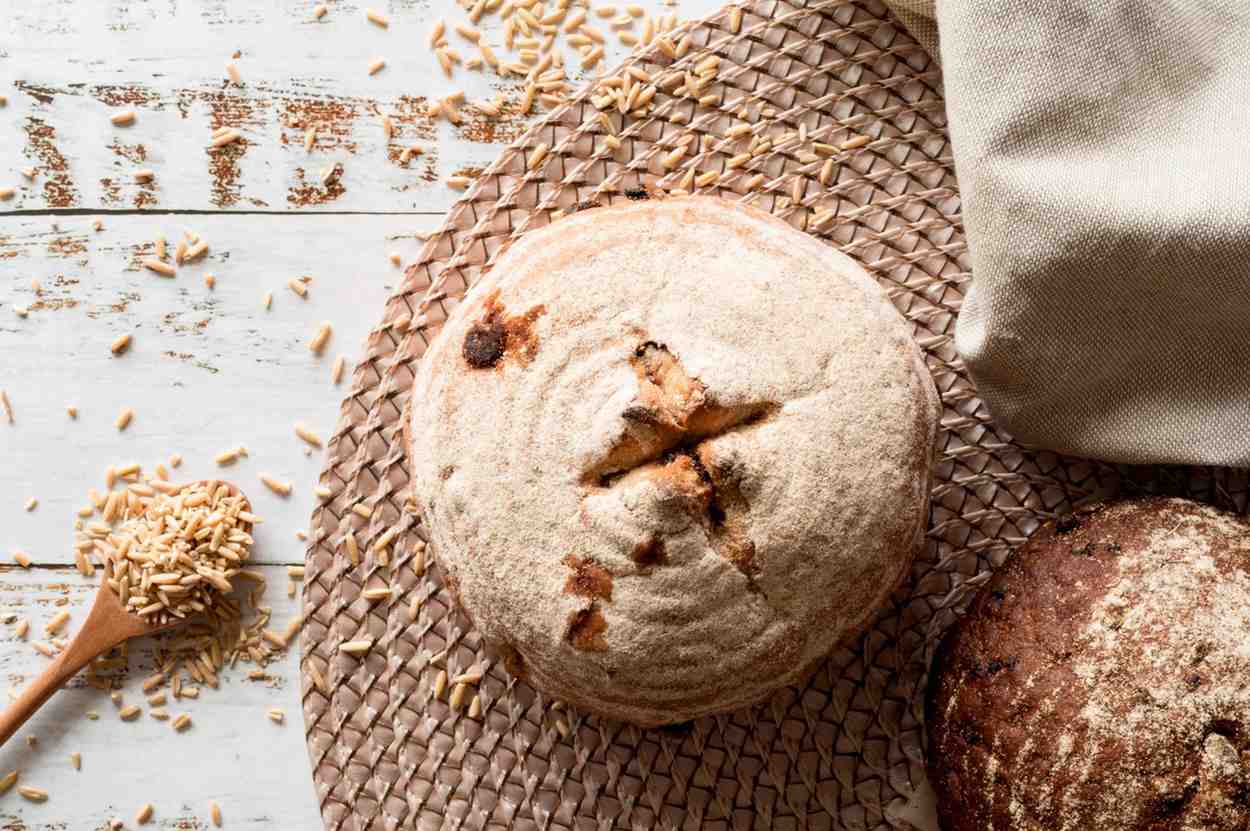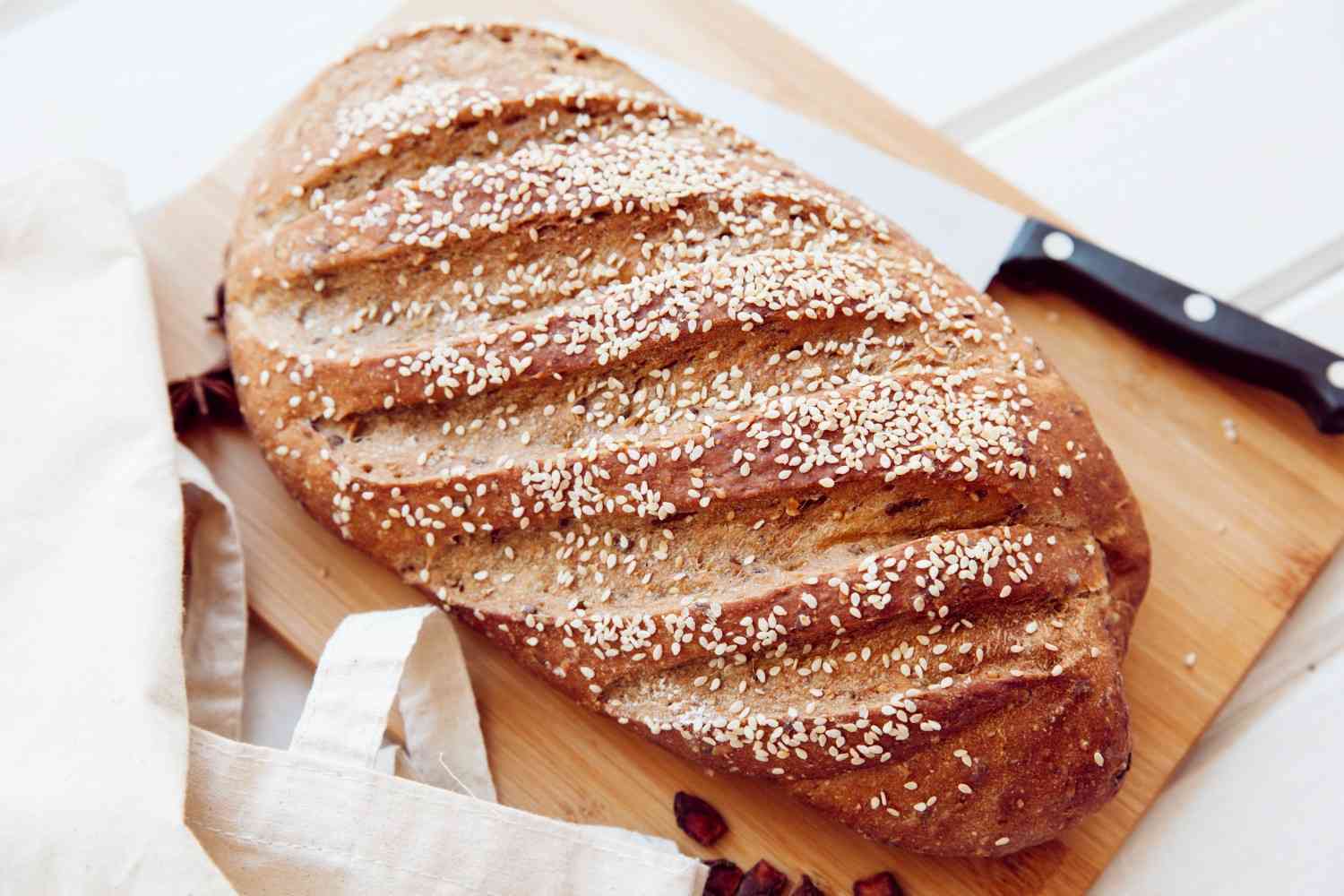
When embarking on a weight loss journey, the idea of incorporating bread into your diet often raises some concerns. Many types of bread are considered high in calories and carbohydrates, but could sourdough bread be an exception? Often praised for its tangy flavor and chewy texture, sourdough bread is made using a unique fermentation process that could offer multiple benefits. So, is sourdough bread good for weight loss?
Let’s explore its nutritional profile, benefits, and how to incorporate it into a balanced diet while pursuing your weight loss goals.
What Sets Sourdough Bread Apart from Regular Bread?
Unlike conventional bread, sourdough is made through a fermentation process that uses wild yeast and lactic acid bacteria. This fermentation makes the bread different in more ways than one. The wild yeast used in sourdough breaks down gluten and phytic acid, which are typically hard for the body to digest in regular bread.
This means sourdough bread could be a better choice for individuals who have mild gluten sensitivity, though it is not gluten-free. The fermentation process also makes the bread easier to digest, which is a huge plus for anyone who struggles with bloating or digestive discomfort.
But what about its impact on weight loss? The secret lies in sourdough’s low glycemic index (GI). Regular white bread can cause rapid spikes in blood sugar, leading to energy crashes and cravings. Sourdough, on the other hand, has a lower glycemic index, meaning it releases sugar more slowly into the bloodstream, providing a steadier source of energy and helping to control hunger.

The Health Benefits of Sourdough Bread
When considering weight loss options, it’s crucial to look beyond calories. Sourdough bread has several health benefits that can contribute to a more balanced and sustainable approach to weight loss. Here are a few reasons why sourdough might be a healthier choice:
- Rich in Fiber: Fiber is a key player when it comes to weight loss. It aids digestion, helps regulate blood sugar, and keeps you feeling fuller for longer. Whole grain sourdough contains significantly more fiber than white bread, making it an excellent choice for anyone looking to stay satisfied between meals.
- Better for Gut Health: Sourdough fermentation encourages the growth of probiotics—healthy bacteria that support gut health. A healthy gut microbiome has been linked to improved digestion and even better weight management. These probiotics can help balance the body’s response to food and improve overall wellness.
- Regulates Blood Sugar: The lower glycemic index of sourdough bread means it has a slower impact on blood sugar levels. This can help maintain stable energy levels and prevent the insulin spikes that often accompany high-GI foods, thus potentially reducing fat storage and supporting weight loss.
- Boosts Satiety: Because sourdough bread is more filling, it can help curb your appetite and reduce the likelihood of overeating. Paired with a high-protein food, it can form a satisfying meal that keeps you from reaching for unhealthy snacks.
How to Incorporate Sourdough Bread into a Weight Loss Plan
If you’re wondering how to enjoy sourdough bread while staying on track with your weight loss goals, the key lies in balance and moderation. While sourdough is a healthier option compared to many types of bread, it’s still important to consume it mindfully. Here are some practical tips on how to incorporate sourdough into a weight loss-friendly diet:

- Stick to Reasonable Portions: Bread, even the healthiest types, can be calorie-dense. Stick to one or two slices per meal, and avoid overeating. Pair your sourdough with foods that are rich in protein, such as eggs, lean meats, or plant-based proteins, to create a filling meal that won’t derail your progress.
- Opt for Whole Grain Sourdough: The more fiber, the better! Look for sourdough made from whole grains like whole wheat, rye, or spelt. These options have more fiber, which not only aids digestion but helps in weight loss by promoting fullness and stabilizing blood sugar.
- Mind Your Toppings: While sourdough itself may be weight-loss friendly, loading it with butter or sugary spreads will cancel out the benefits. Instead, try healthy toppings like avocado, hummus, or a small drizzle of olive oil to enhance flavor without adding excess calories.
- Pair with Nutrient-Dense Foods: Build a balanced meal by pairing sourdough with nutrient-dense foods like leafy greens, vegetables, and lean protein sources. This will keep you satisfied and ensure that your meal is supporting your weight loss efforts.
Frequently Asked Questions
1. Is sourdough bread healthier than other types of bread?
Yes, sourdough is often considered healthier than other types of bread due to its fermentation process. It has a lower glycemic index, is easier to digest, and contains more fiber. Additionally, whole grain sourdough is packed with beneficial nutrients that promote gut health and can aid in weight loss.
2. Can sourdough bread help me lose weight?
Sourdough bread can be part of a weight loss plan when eaten in moderation. Its lower glycemic index and higher fiber content help keep you feeling fuller for longer, stabilize blood sugar, and reduce cravings. However, portion control and pairing it with healthy, whole foods are key to using it effectively in a weight loss diet.
3. Can I eat sourdough bread if I want to lose belly fat?
Yes, you can eat sourdough bread while trying to lose belly fat. When consumed as part of a balanced meal, it can aid in weight loss by providing a slow-release of energy, preventing insulin spikes, and keeping you full. Just be mindful of the portions and what you pair it with.
4. Is sourdough bread gluten-free?
No, traditional sourdough bread is not gluten-free. It is made from wheat or other grains containing gluten. However, the fermentation process does break down some of the gluten, which might make it easier to digest for those with mild gluten sensitivity. If you need a gluten-free option, look for specific gluten-free sourdough recipes.
Conclusion: Is Sourdough Bread a Good Choice for Weight Loss?
Sourdough bread can indeed be a good choice for weight loss when eaten in moderation. Its lower glycemic index, higher fiber content, and probiotic benefits make it a healthier option compared to many other bread types. However, as with any food, portion control is key, and it’s important to pair sourdough with a balanced, nutritious diet.
If you’re looking for a satisfying, flavorful bread that won’t spike your blood sugar or leave you hungry an hour later, sourdough could be just what you need. By incorporating it mindfully into your meals, you can enjoy its health benefits without sabotaging your weight loss goals.
Would you like to learn more about healthy food choices for weight loss? Check out our other articles for more tips on maintaining a balanced diet.



